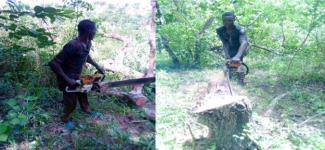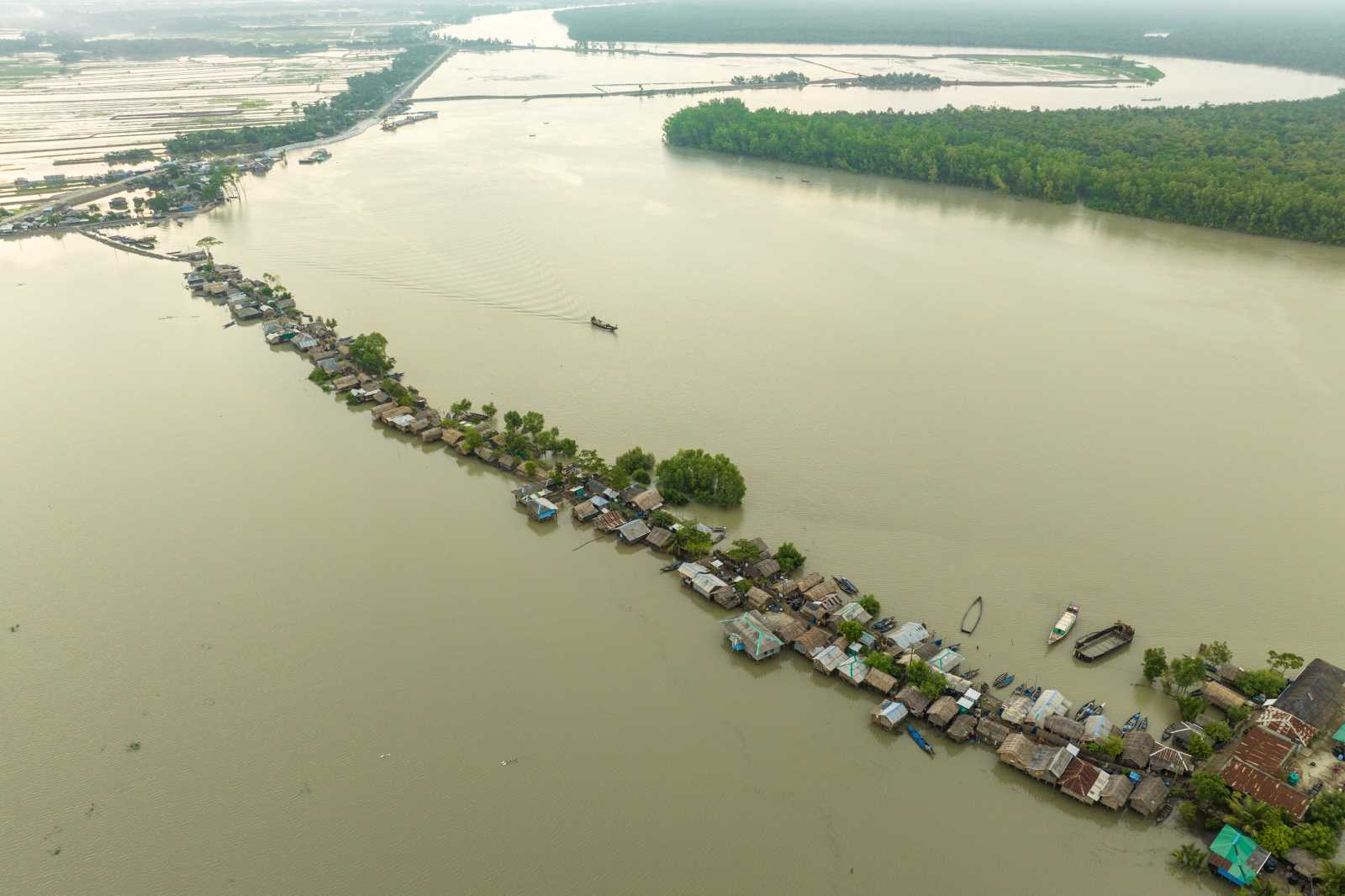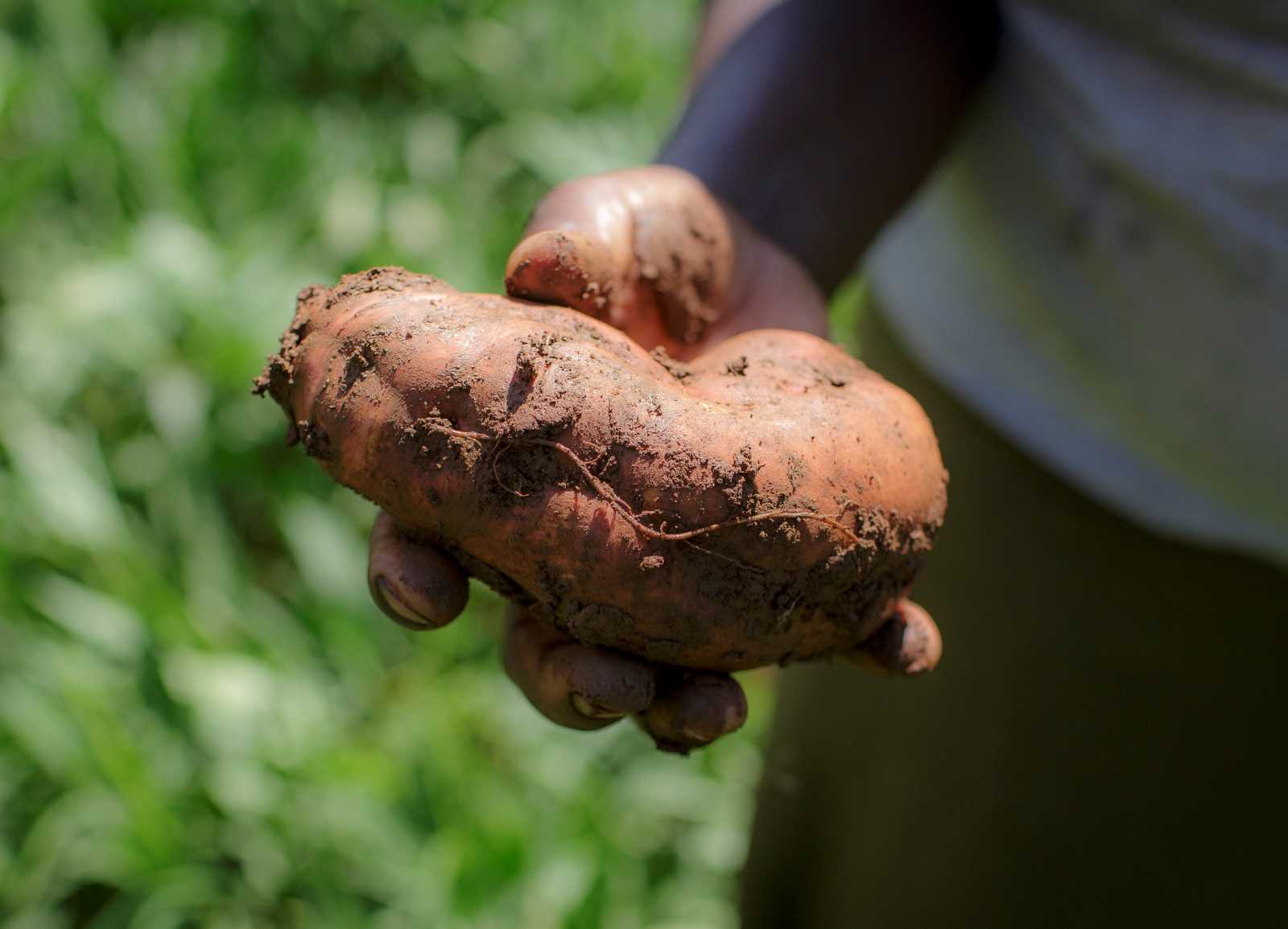Unsustainable livelihoods
Savè chainsaw massacre

The forest surrounding Savè is under attack. Wild logging and uncontrolled cattle grazing are common. The natural resources on which the livelihoods of the local people used to depend are being depleted fast. The town is located about 250 kilometres north of Benin’s commercial capital, Cotonou and has a population of around 150,000 inhabitants.
A few decades ago, the residents of Savè only used hatchets and machetes to clear the bushes and collect firewood. In the meantime, loggers with chain saws have moved in. Rare century-old trees are being felled and quickly cut into planks. The timber is loaded onto commercial trucks and brought to Cotonou, where joiners’ workshops pay high prices for the commodity. The felling and incineration of shrubs for charcoal production accelerates deforestation.
Depressingly, a growing number of people in Savè see illegal wood cutting as a way to get rich quick. The law on logging is hardly ever enforced. Even when illegal loggers are caught red-handed occasionally, they manage to bribe their way to impunity.
Dieudonné N. is a trader in wood products. He brags about the substantial amount of money that he pockets every year, but seems unaware of the negative effects of deforestation. He says that he employs many labourers to cut wood in the dry season: “I order them to fell the biggest trees they can spot and cut them into planks.” By the month of August, the planks are dry enough to be ferried to his customers. He claims to send about 200 truckloads of timber to Cotonou per year.
Moussa M. is also deeply involved in the illegal business – and proud of the money he earns that way. “Logging is far more rewarding than farming,” he says. “The only thing I’m worried about is that there are too many people in this business now, so profits have been dropping since 2014.”
Politicians’ protection
But not everybody is happy about the ongoing deforestation. Daniel B. is a 73-years old peasant farmer who has spent his life in an underprivileged neighbourhood of Savè. He is angry. “Our trees, which are part of our cultural heritage, are being felled, and no one seems to care,” he laments. He insists that logging is illegal. According to him, the culprits are undaunted and “even brag about the protection that they get from politicians in positions of power and officers of public administration”.
In theory, illegal tree cutting leads to hefty fines, up to the equivalent of € 900 and even jail terms of up to two years. The loot should be confiscated, and so should the tools used. According to a law passed in 1993, anyone who wants to exploit forest resources needs a licence. In real life, the law is hardly enforced.
Savè is already feeling the negative impacts. When large swaths of the forest are cleared, herders move in and their animals finish off whatever small vegetation is left. Grazing cattle, goats and sheep destroy the fields of small farms, moreover.
Many people are already feeling the pinch because they can no longer gather the forest resources that generations of rural people traditionally depended on. Soil erosion is a huge problem. Vast expanses of land which were cleared by loggers and peasant farmers are now laid bare. Their nutrients are washed away after the heavy downpours that Savè experiences in the rainy season. Landslides and floods have become common occurrences.
Farmers, moreover, are prone to expanding their fields by setting the bush ablaze before the planting season. The cultivation of yam, which is the main staple food in Savè, requires vast expanses of land. Population growth is a driver of deforestation. Meanwhile, the harvests have lost in quality – and quantity. Many years back, yams grown in Savè carried a distinctive label: they were bigger in size and very sweet in taste. That is no longer so. In view of environmental degradation, ever more people migrate to neighbouring Nigeria in search of greener pastures.
According to the UN Food and Agriculture Organization (FAO), Benin’s forests are threatened by bush fires, overgrazing, illegal logging and extensive farming techniques. Unfortunately, many people in Savè still do not understand the danger. Farmers are focused on the next harvest and do not consider long term impacts. Compounding environmental problems, some use chemical fertilisers and pesticides. The poison is detrimental to the buzzing forest life.
Deforestation in Savè is linked to global dynamics. Africa Agri Tech, for example, is a Chinese company. According to reliable sources, it has acquired forest land where it is now growing tomatoes, chili and onions. More than two thirds of the yield is apparently exported to China, while the rest is sent to Nigeria.
Lost diversity
According to research findings, deforestation is already having a negative impact on the fauna in Savè. Many animals that populated the forest in the past have disappeared entirely or at least become extremely rare. That is true of wild rabbits, squirrels and delicacies like the big black snails. The songs of various bird species are no longer heard.
The diversity of vegetation is declining too. Many people lament the disappearance of wild cashew nuts and a tree called “cosso”, which was used to make long-lasting, affordable furniture. It is also becoming ever harder to find medicinal herbs, roots and saps. In the past, people relied on traditional medicine for standard ailments, but now they increasingly depend on expensive drugs from pharmacies.
Some local non-governmental organisations and community radio stations have started awareness raising campaigns to stem the curse of deforestation. They promote measures such as massive tree planting to replenish the forest. They are also in favour of better training for the workers of the National Forest Service. They want them to become committed custodians of the region’s natural resources and enforce environmental laws stringently.
Karim Okanla is a media scholar and free-lance writer from Benin.
karimokanla@yahoo.com












